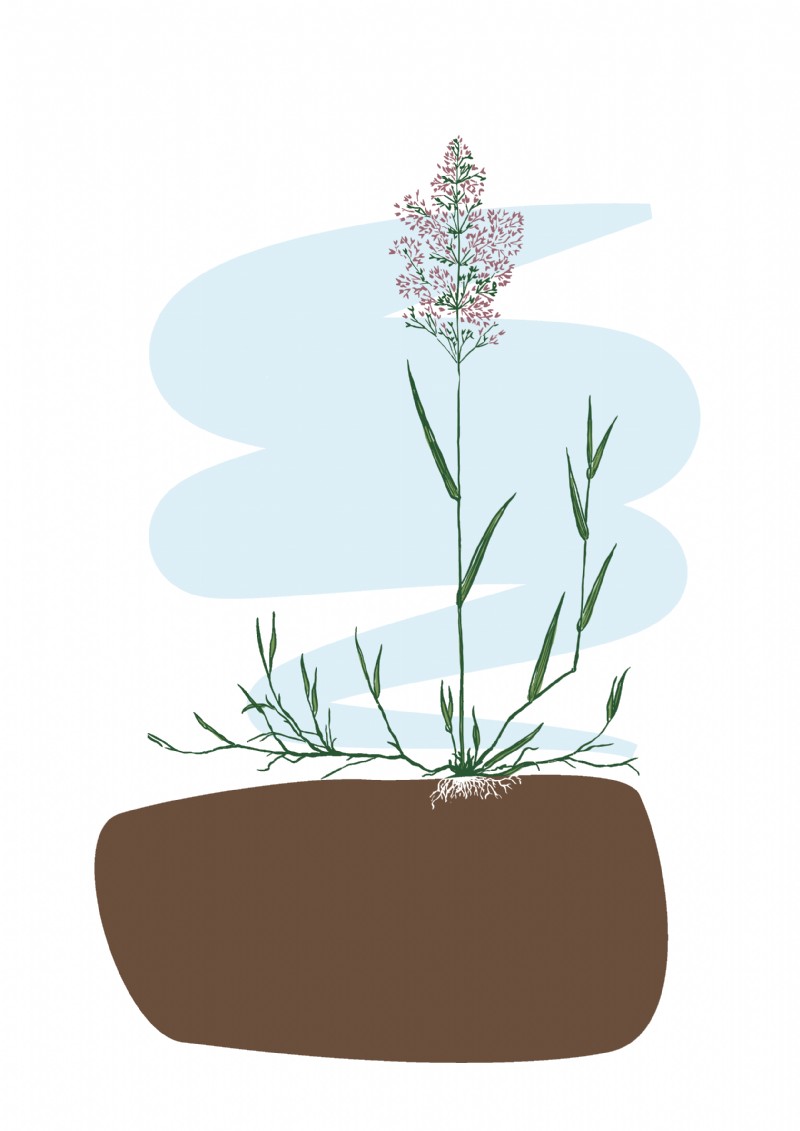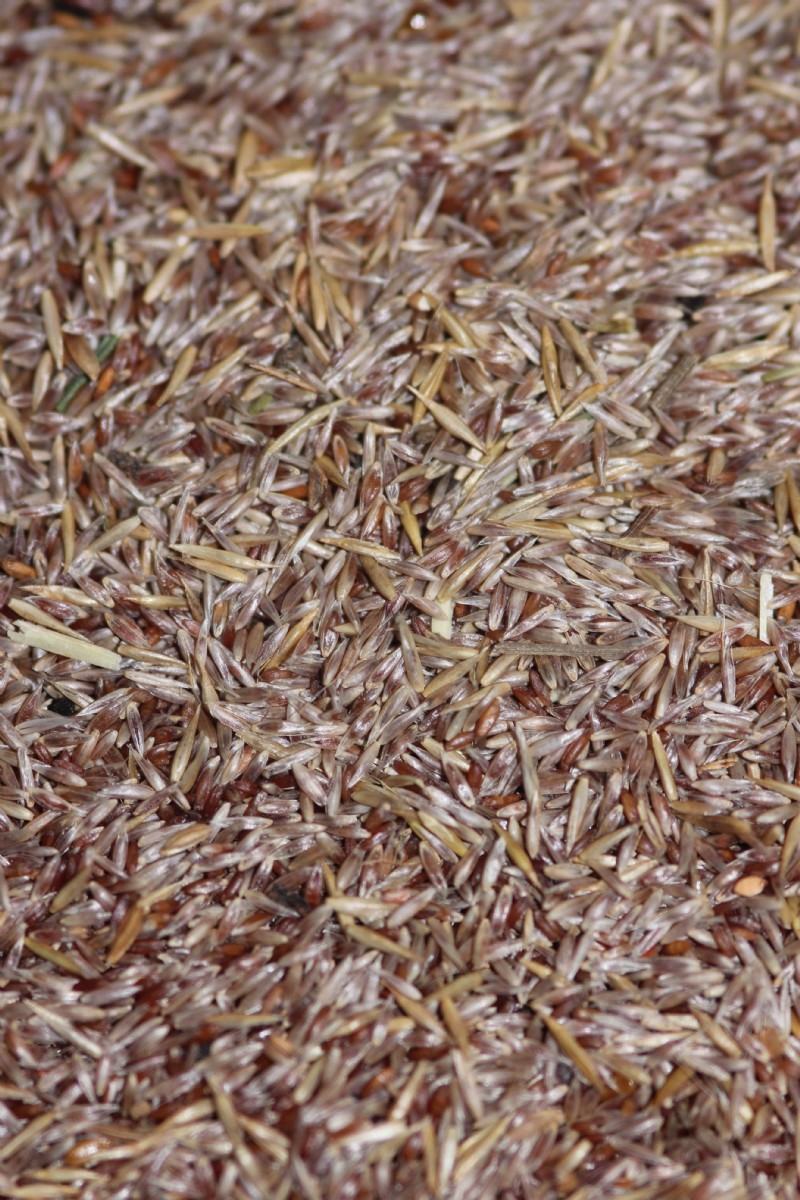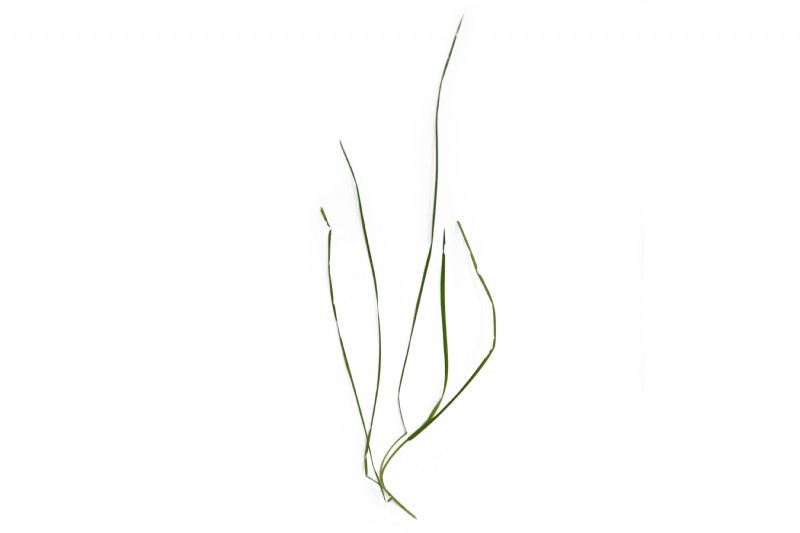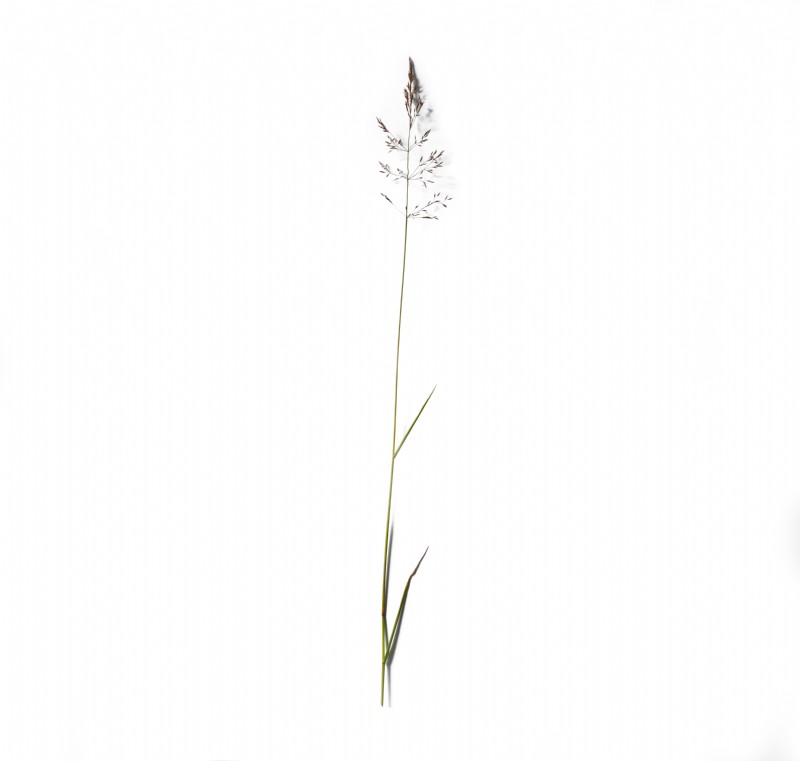Bentgrass
Common Bentgrass is a perennial grass with fine leaves, The seed head is delicate and attractive, opening loosely from late spring through to autumn. Older swards in heavily grazed or trampled areas may form dense, low growing clumps.
Uses
It is sometimes known as ’golf green’ grass and is commonly used in lawns and golf courses in the amenity sector. It can also be used as a component in wild flower or environmental seed mixtures, because it is not aggressive and therefore does not crowd out similarly delicate species.
Persistence
A long term species often most prevalent on poorer soils, it may be out competed by more aggressive, cultivated species on higher quality soils which receive artificial fertiliser or where high levels of lime are used to raise the ph.
Strengths
Common Bent forms a short even turf, which is very useful for creating fine surfaces like ornamental lawns and bowling greens in the amenity sector. This grass tolerates close mowing down to a height of 5 mm.
Sowing Rate Advice
40kg per acre / 100kg per ha
Very rarely sown as a pure stand - It is a particularly small seed
Mixture Sowing Rate Advice
0.5kgs per acre / 1.25kgs per ha
Very small seed size therefore only small amounts needed in a mixture, the above equates to 5% of a mixture.
Ideal Sowing Time
Sowing onto a fine seed bed, with good moisture and ground conditions will speed up germination and establishment, however it can be sown at most times of the year.
Management
This species will tolerate being cut low to create a thick, robust sward.
Distinguishing characteristics
Seed
This is a small seed, which is oblong to ovate in shape. It has a shiny brown to amber colour. It is 1mm in length.
Flowering Plant
A rich, dark green colour.
It has flat, rough leaf blades (1-5 mm wide) with rough edges, the leaves are lanceolate in shape and pointed.
The ligules are short, collared like and rounded (2mm).
This species has branched panicles, with spikelets clustered around the end, later in the season the panicle is tinged with purple.
The culms can be rough towards the panicle.
A distinguishing feature is the open panicle from plant development to seeding.
It has short creeping rhizomes.
It grows between 20 and 50 cm in height, possibly taller on fertile soils.
Additional Info
Flowers June - July Average seeds per kg - 1,000,000. A recent introduction in the amenity grass sector is Agrostis castellana a variety called 'Highland'.
Works well with
Bentgrass is seldom used on its own. A mixture of dwarf ryegrass, fescue and bentgrass will produce a knitted turf and offer unbeatable toughness for lawns, caravan parks and airfields.You can find Bentgrass in the following mixtures
- Golf Greens Over-Seeding Mixture without ryegrass
- Golf Greens without ryegrass
- Golf Fairway & Cricket Outfield
- Golf Course Roughs Mixture
- Golf Course Tees Mixture with dwarf ryegrass
- Grass Tennis Court & Cricket Wicket
- Ornamental Lawn without ryegrass
- Hard Wearing Lawn with ryegrass
- Shady Lawn without ryegrass
- Low Maintenance without ryegrass
- Verge Mixture with ryegrass
- Cotswold Wild Flora
- Woodland Edge and Shady Area Mixture
- Acid & Clay Soil Mixture
- Chalk & Limestone Soil Mixture
- Damp Meadow
- Pollen & Nectar Mix Grass & Legume Margin
- Pollen & Nectar Flower Mix Grass & Legume Margin 50% ORGANIC
- Orchard Mixture
- Orchard Clover Understory Mixture
- Recreating Grassland
- Recreating Grassland 50% ORGANIC
- Species Rich Parkland Grassland Low Maintenance
- Species Rich Parkland Grass Low Maintenance 20% ORGANIC
- Buffer Strip Grass Margin (CAHL3, AHL3, CAHL4 & AHL4)
- Buffer Strip Grass Margin Mix 50% ORGANIC
- Equine Pasture Mix - Long Term No Ryegrass
- Equine Pasture Mix - Long Term No Ryegrass - 50% ORGANIC
- Natural Pony Paddock - with Herbs & No Ryegrass
- Natural Pony Paddock - 50% ORGANIC







